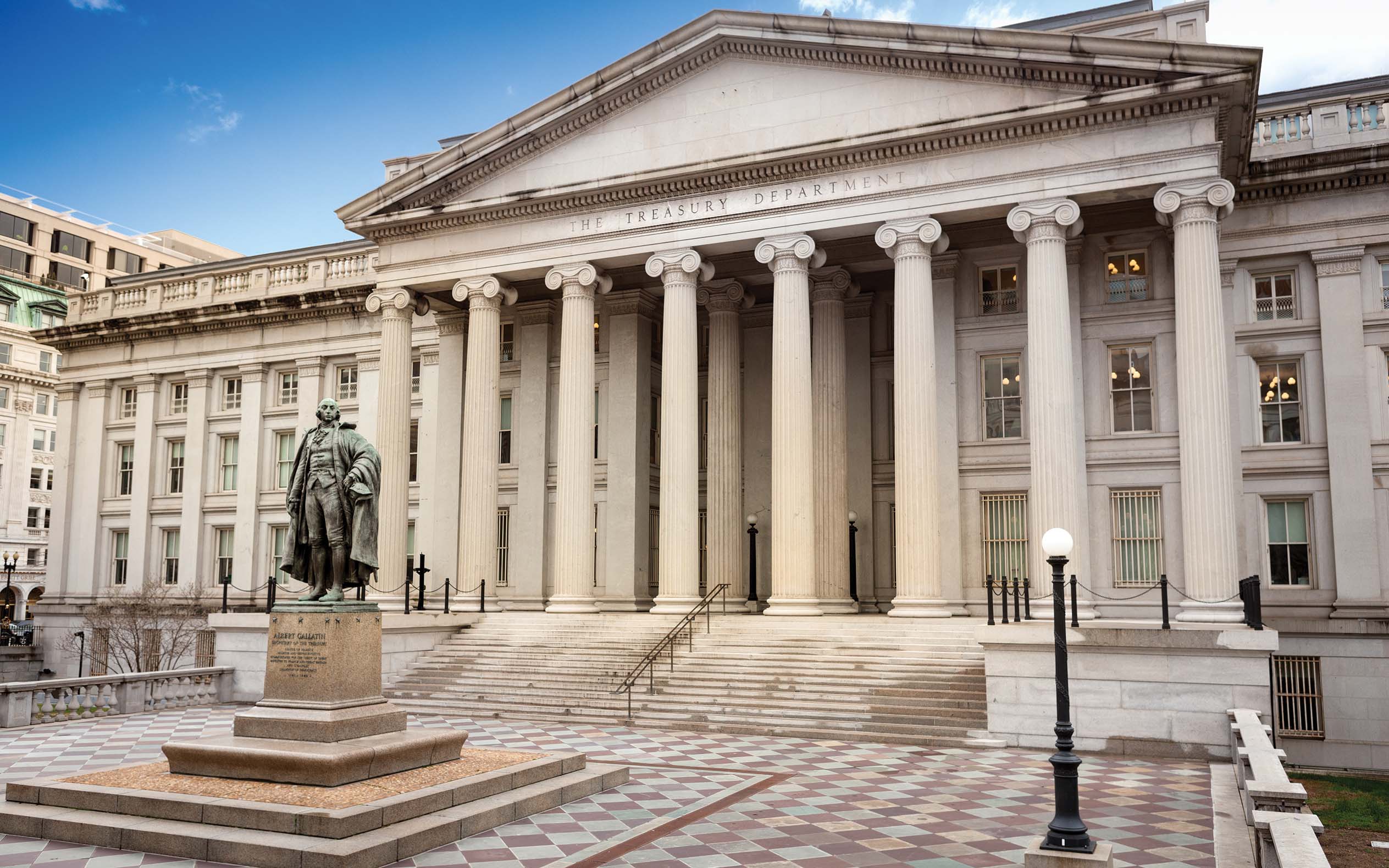Despite its popularity and precarity, cryptocurrency remains mostly unregulated at a government level. So, to address the unknowns surrounding this sector and protect consumers, ICBA is advocating for clear legislation.
Susan Sullivan Kinney and Brian Laverdure: The Cryptocurrency Debate
1024 Bitcoin 2k
October 01, 2024 / By Brian Laverdure
Despite its popularity and precarity, cryptocurrency remains mostly unregulated at a government level. So, to address the unknowns surrounding this sector and protect consumers, ICBA is advocating for clear legislation.
Since 2009, when bitcoin was introduced as the first cryptocurrency, consumer interest in and utilization of this novel asset has ebbed and flowed. Price fluctuations, high interest rates, computer hacks and a lack of clear regulations have led many to question the practicality and safety of virtual currencies, while also drawing a speculative—and even curious—interest from others.
Secured through cryptography and distributed computer networks, cryptocurrency can be exchanged without the involvement of regulated or insured financial institutions. Instead, the transactions take place outside the traditional financial system, in an environment where both buyers and sellers maintain semi-anonymity.
High-profile cryptocurrency hacks, such as the theft of approximately $400 million from FTX and the $625 million loss experienced by Ronin Network, have intensified the scrutiny on unregulated digital assets. During the first six months of 2024 alone, hackers lifted nearly $1.4 billion worth of crypto from global sources—more than 1.5 times 2023’s total sum of stolen crypto.
There has also been a rapid rise in crypto investment scams, a type of fraud in which victims are deceived into investing in fraudulent cryptocurrency projects. In 2023 alone, U.S. consumers reported nearly $4 billion in losses to this criminal activity.
Combined with several high-profile failures, these hacks have encouraged policymakers to look into how they could potentially govern cryptocurrency markets and stablecoins, which is a type of cryptocurrency pegged to a currency or underlying asset. ICBA has been active in these policy debates since digital currencies were first explored, including raising concerns about Facebook’s efforts to develop its own digital currency in 2019.
Striking the right balance
How you can help
It is important for community bankers to stay involved in the regulatory debate around cryptocurrency to safeguard both the industry and your customers. Keep these points in mind and make your voice heard through ICBA’s grassroots Action Center (icba.quorum.us).
ICBA recognizes the need for clear guidelines on cryptocurrency and stablecoins. However, it is critical that regulatory frameworks effectively address the risks associated with cryptocurrency and safeguard both the financial system and consumers, particularly given the potential for illicit finance in the crypto sector. Additionally, it is crucial to ensure a level playing field for community banks, which already face a complex array of state and federal regulations.
One of our paramount concerns is how cryptocurrency provides a potential pathway for mixing commerce and banking. We have spent decades opposing the mixing of banking and commerce (for example, community banks are not allowed to engage in commercial activities).
There have been concerns over, and fairly strong bipartisan opposition in the past to, large commercial giants and big tech companies getting involved in banking, with the key issue being the conflicts of interest and potential risks for consumers.
ICBA worries about large tech companies’ longstanding interest in stablecoins and other cryptocurrency, which presents a new challenge to long-running opposition to the mixing of banking and commerce.
Protecting investors, consumers and the financial system
In letters to the House Financial Services Committee in advance of its consideration of chairman Patrick McHenry’s Clarity for Payment Stablecoins Act in July 2023, ICBA emphasized community banks’ strong interest in ensuring that digital assets do not harm investors, consumers or the financial system. One of our primary concerns is the potential for regulatory arbitrage created by the proposed regulatory framework for state-qualified nonbank payment stablecoin issuers.
“Under the draft framework, the Federal Reserve’s ability to approve and supervise state-qualified issuers would be significantly limited,” ICBA’s letter states. “The Federal Reserve would not have direct access to critical information needed to assess the safety and soundness of state-qualified stablecoin issuers, making consumers vulnerable.” This lack of oversight is especially concerning given the national and global nature of cryptocurrency markets.
Continued advocacy
ICBA remains closely engaged with lawmakers regarding proposed legislation to establish a regulatory framework for stablecoin issuance by banks and nonbanks. Most recently, ICBA president and CEO Rebeca Romero Rainey published a LinkedIn post outlining the group’s stablecoin legislation priorities. When crafting these frameworks, she says the association is calling on Congress to:
Ensure any new regulatory framework recognizes the outsized risks that stablecoins pose to consumers and the financial system.
Address crypto’s role in facilitating financial crimes, such as enabling money laundering and terrorist financing, defrauding consumers and businesses and evading U.S. sanctions.
Preserve the separation of banking and commerce by ensuring commercial firms are not given the significant power of issuing private currency.
Reject cryptocurrency advocates’ calls for giving states the authority to charter stablecoin issuers with limited federal oversight, which would establish a regulatory race to the bottom ripe for bad actors to exploit.
Prohibit the Federal Reserve from granting master account access to such issuers.
Subscribe now
Sign up for the Independent Banker newsletter to receive twice-monthly emails about new issues and must-read content you might have missed.
Sponsored Content
Featured Webinars
Join ICBA Community
Interested in discussing this and other topics? Network with and learn from your peers with the app designed for community bankers.
Subscribe Today
Sign up for Independent Banker eNews to receive twice-monthly emails that alert you when a new issue drops and highlight must-read content you might have missed.
News Watch Today

Join the Conversation with ICBA Community
ICBA Community is an online platform led by community bankers to foster connections, collaborations, and discussions on industry news, best practices, and regulations, while promoting networking, mentorship, and member feedback to guide future initiatives.












